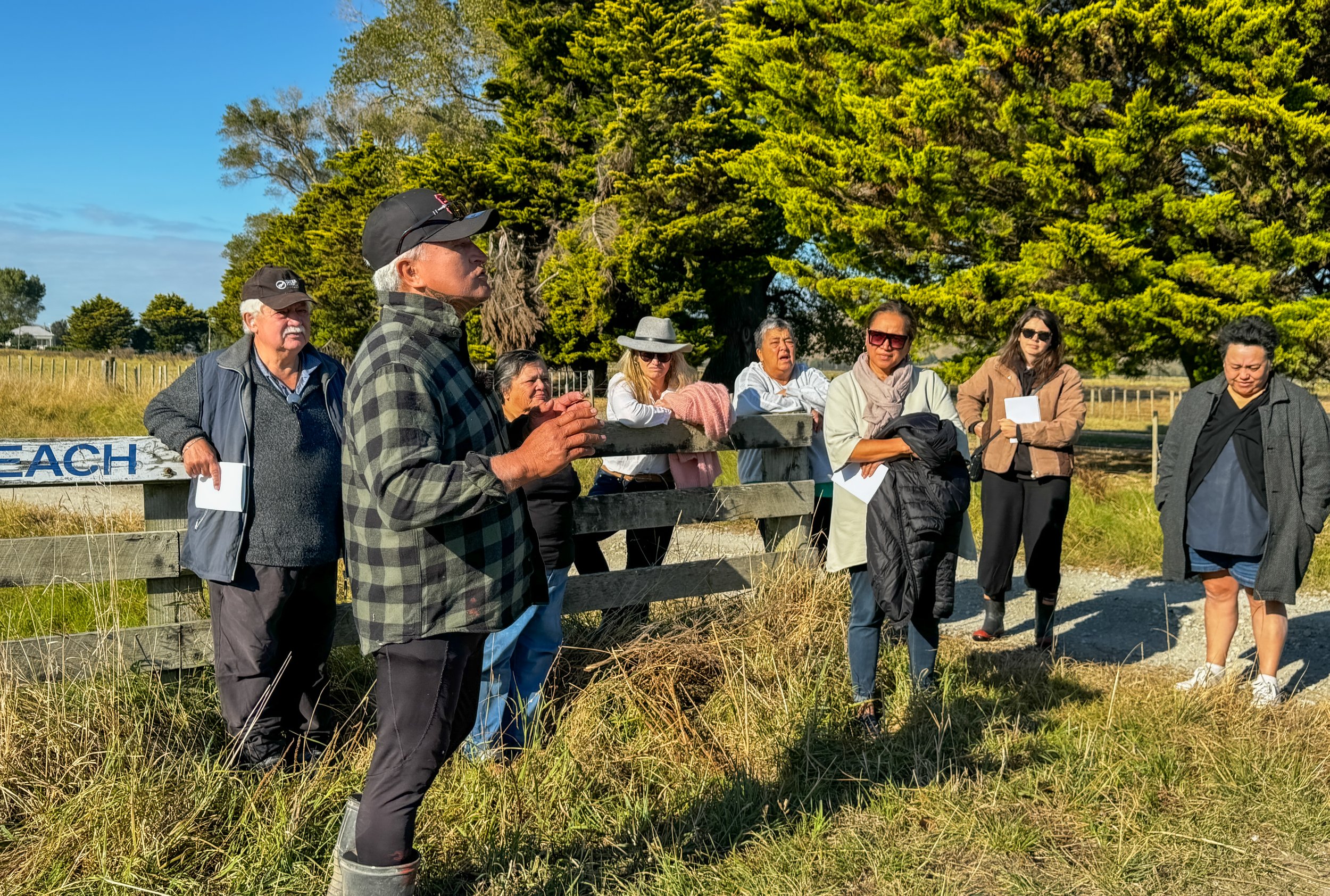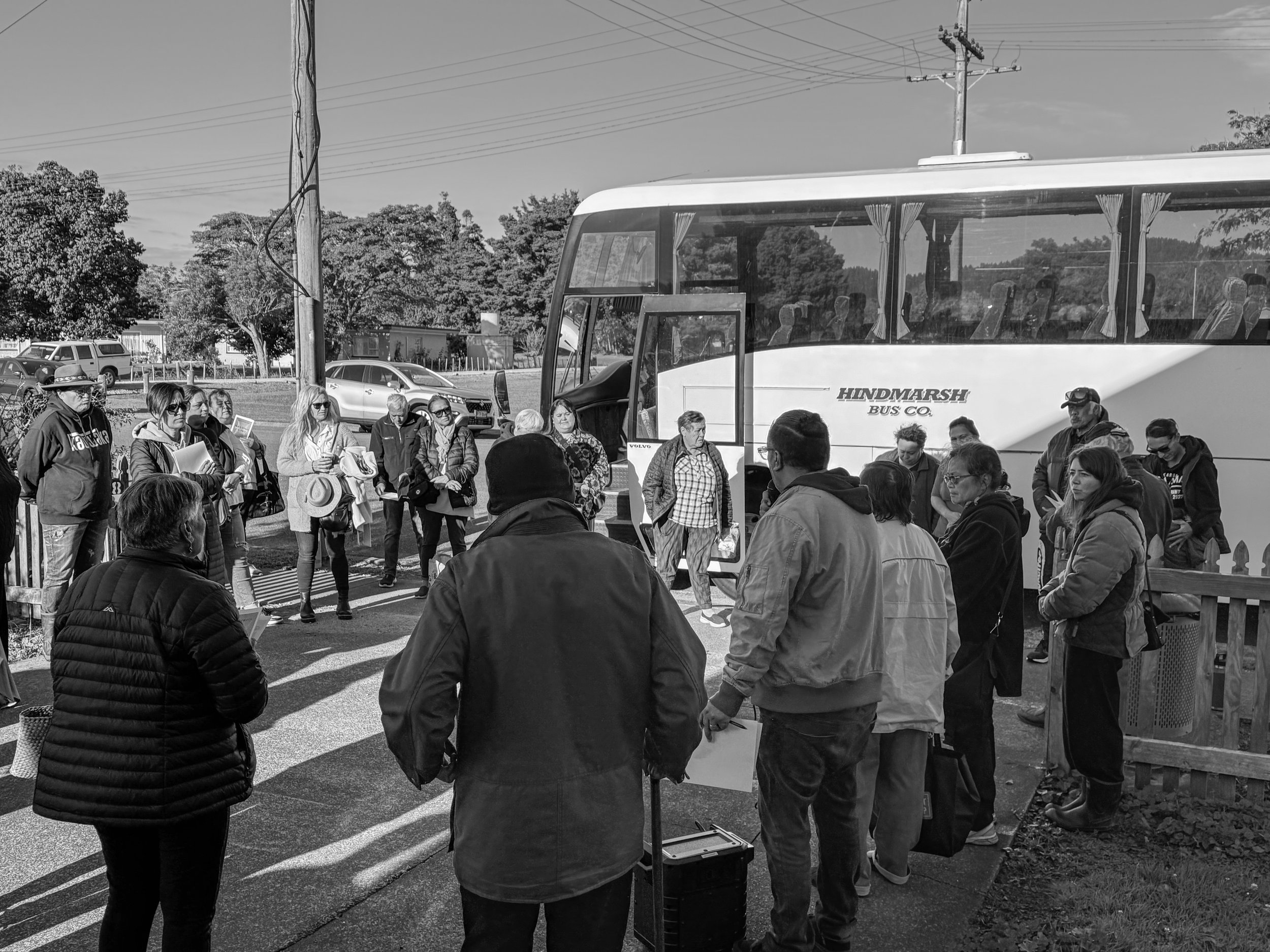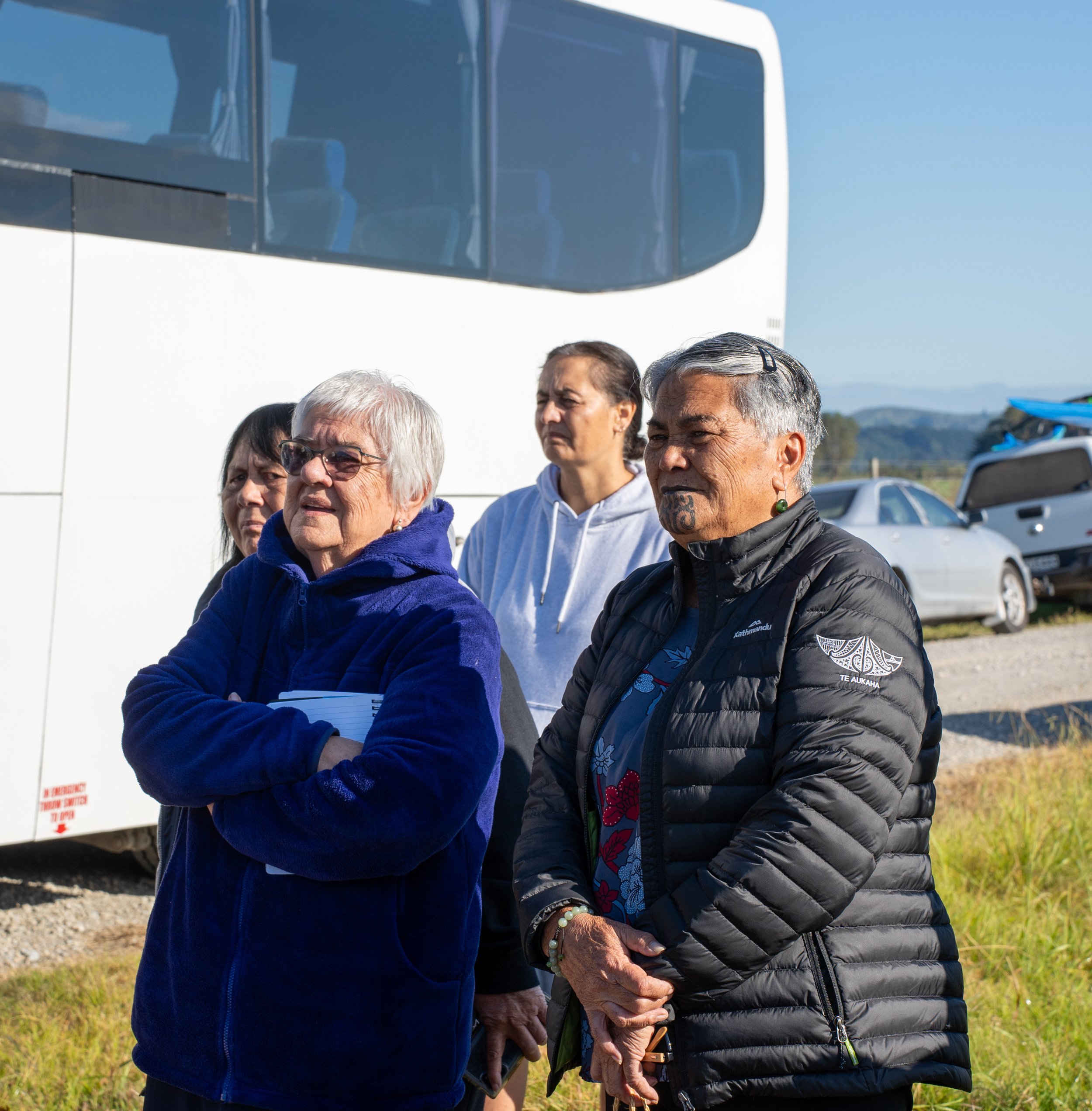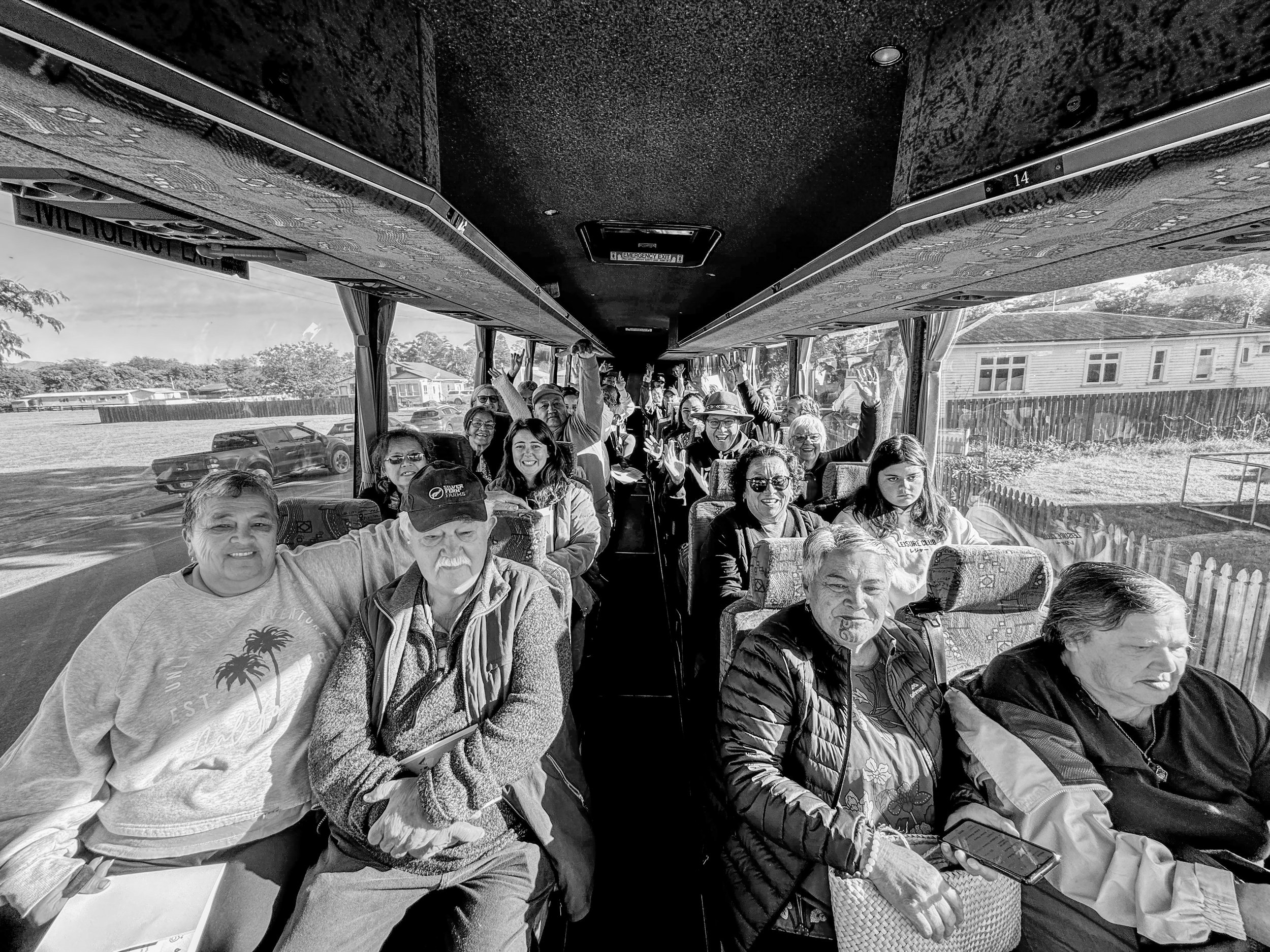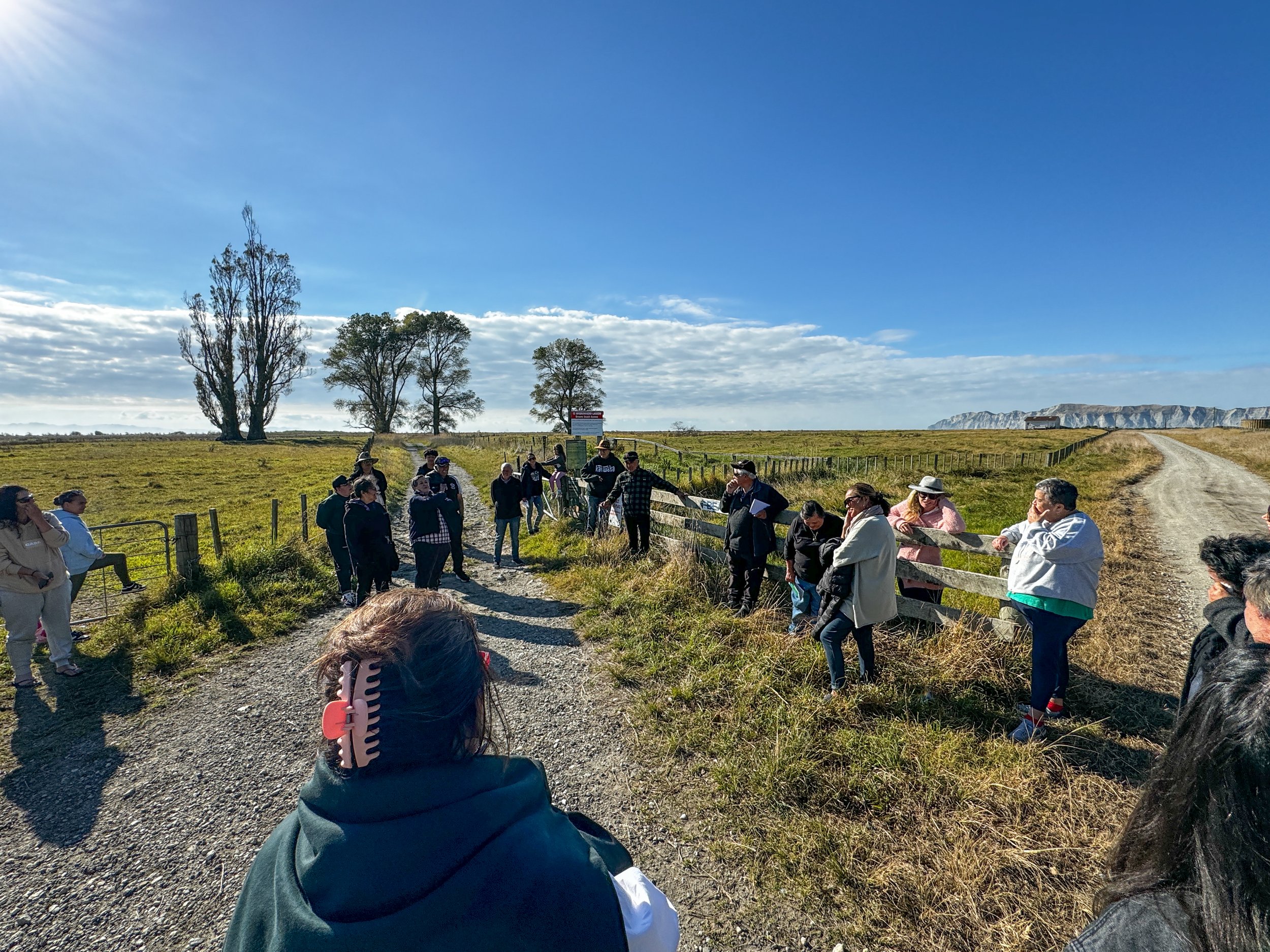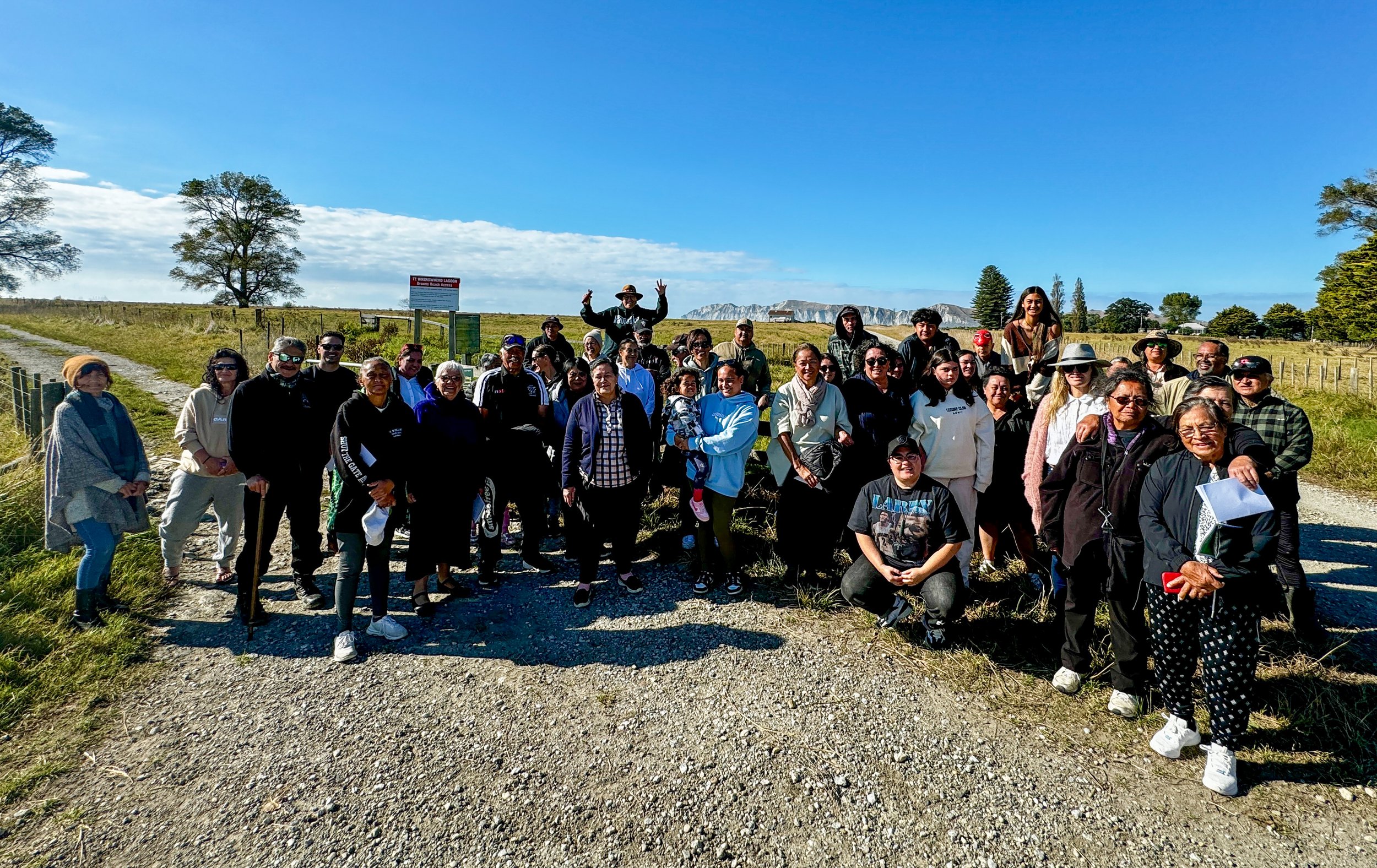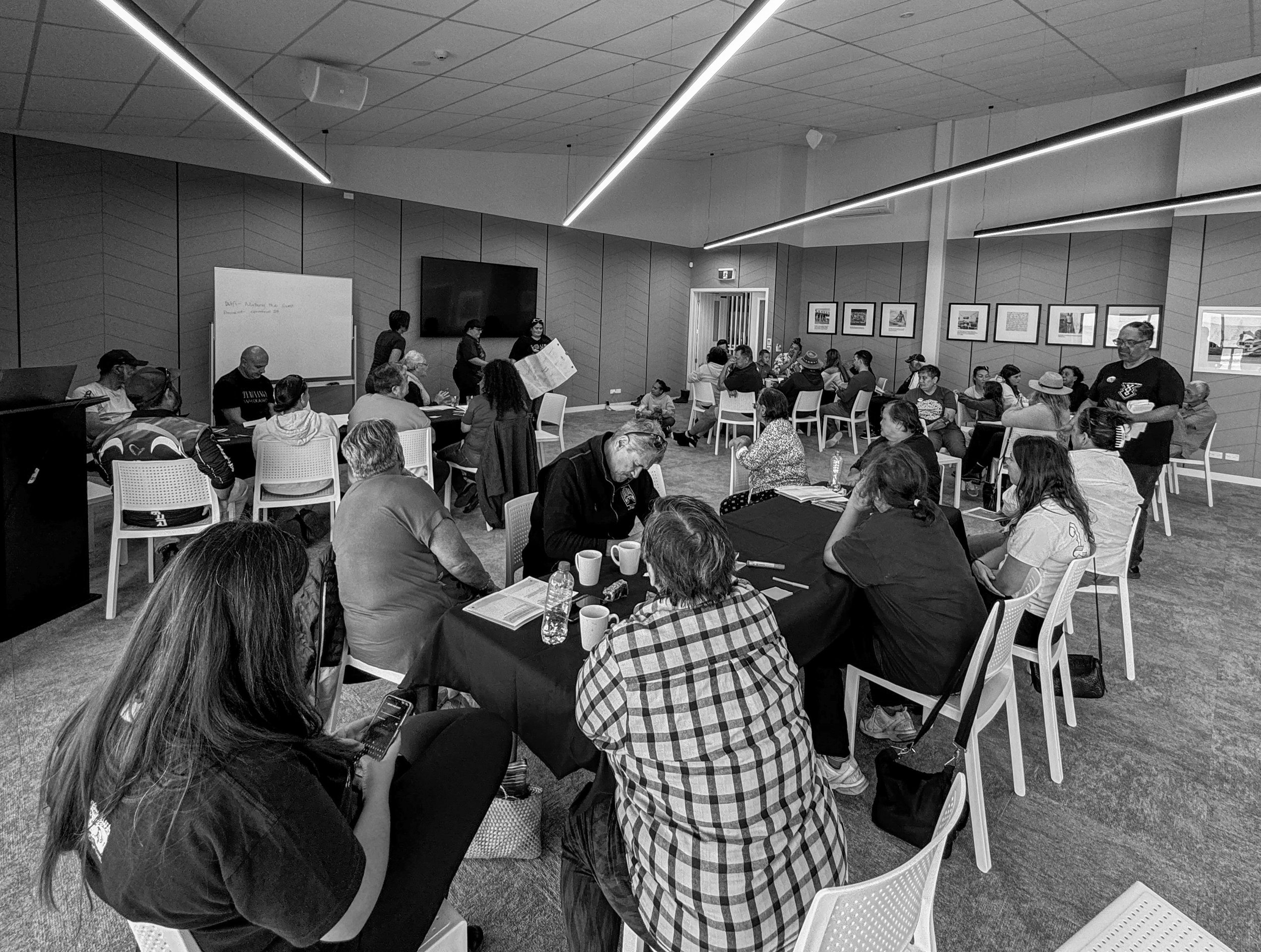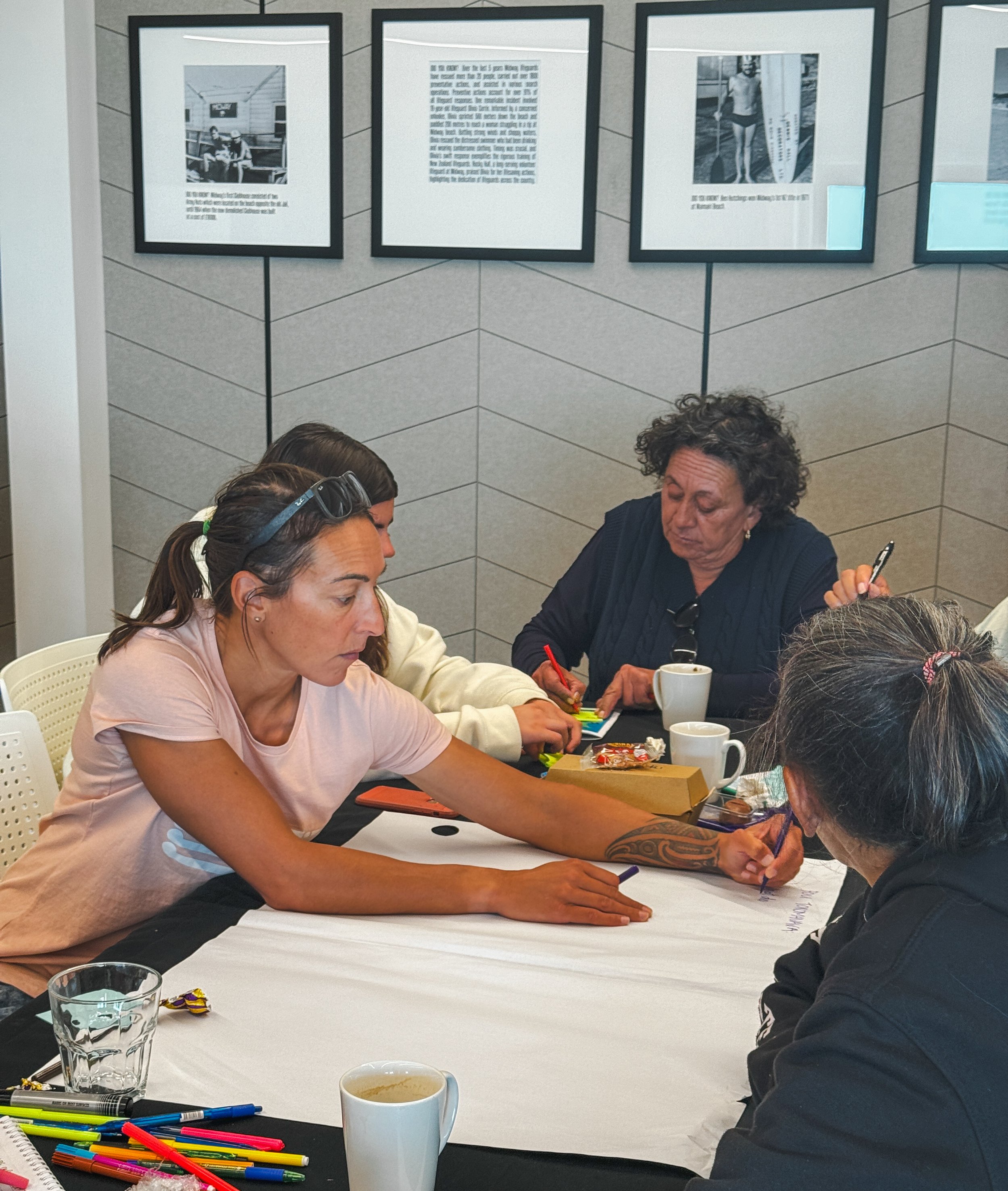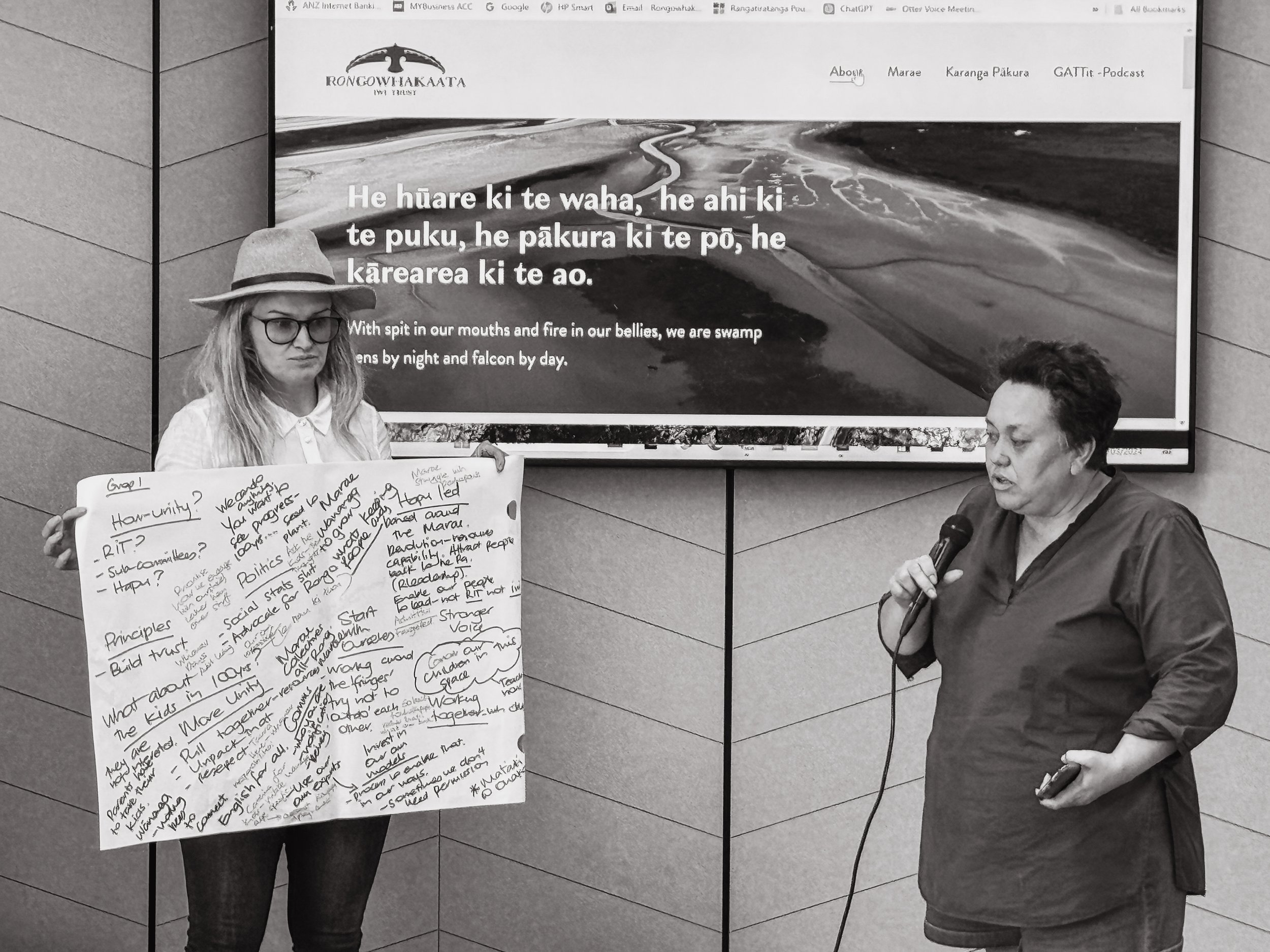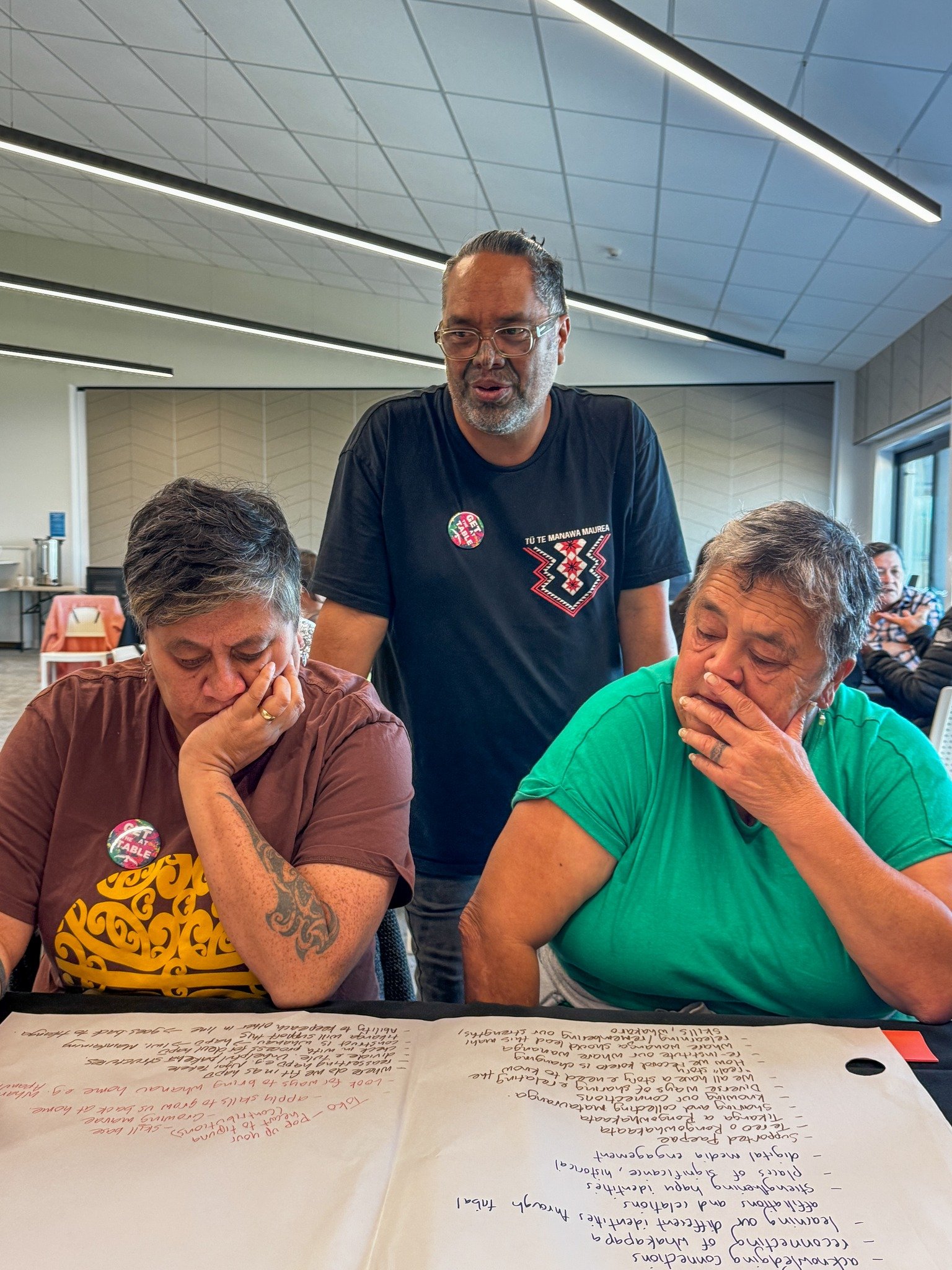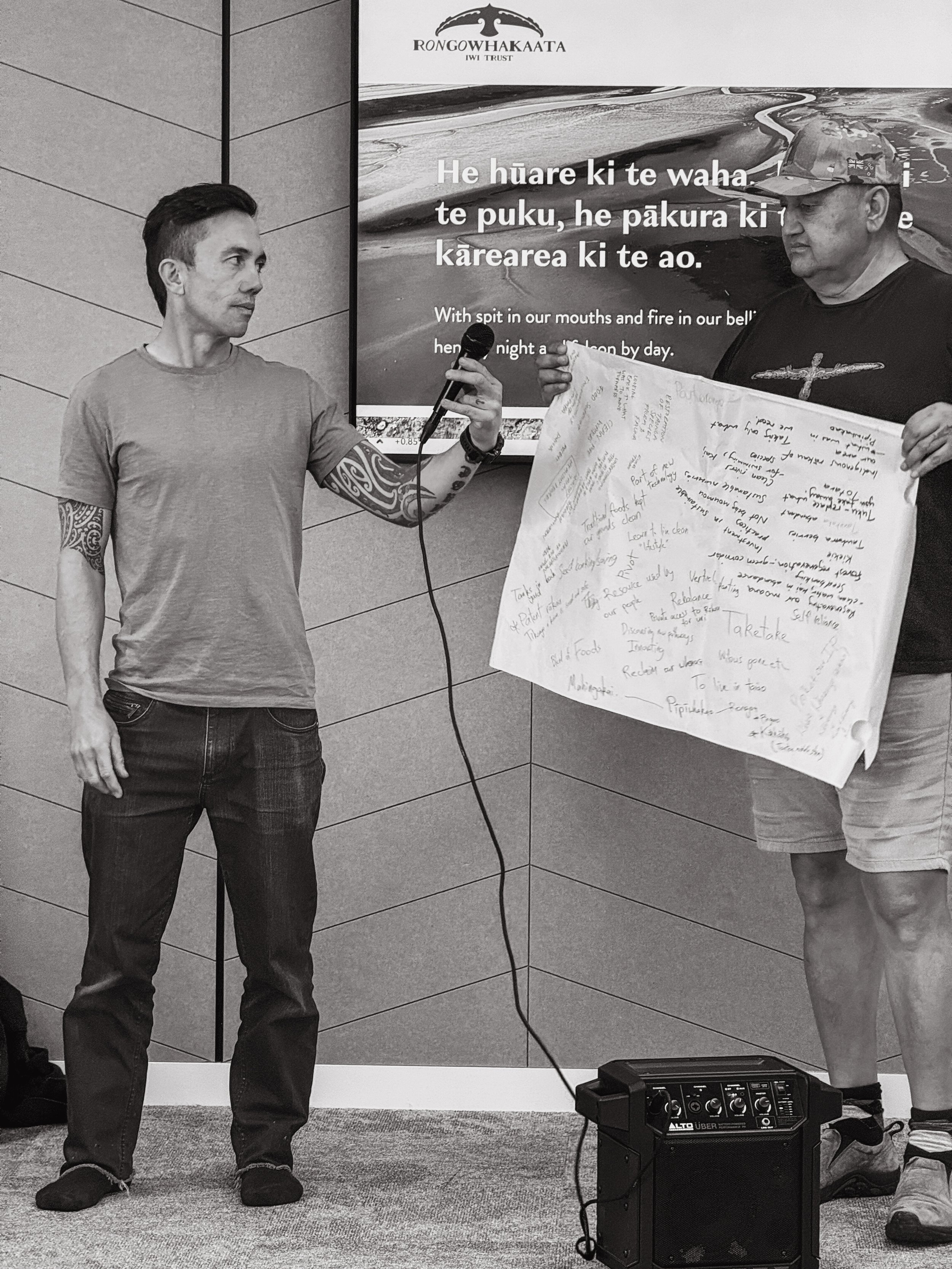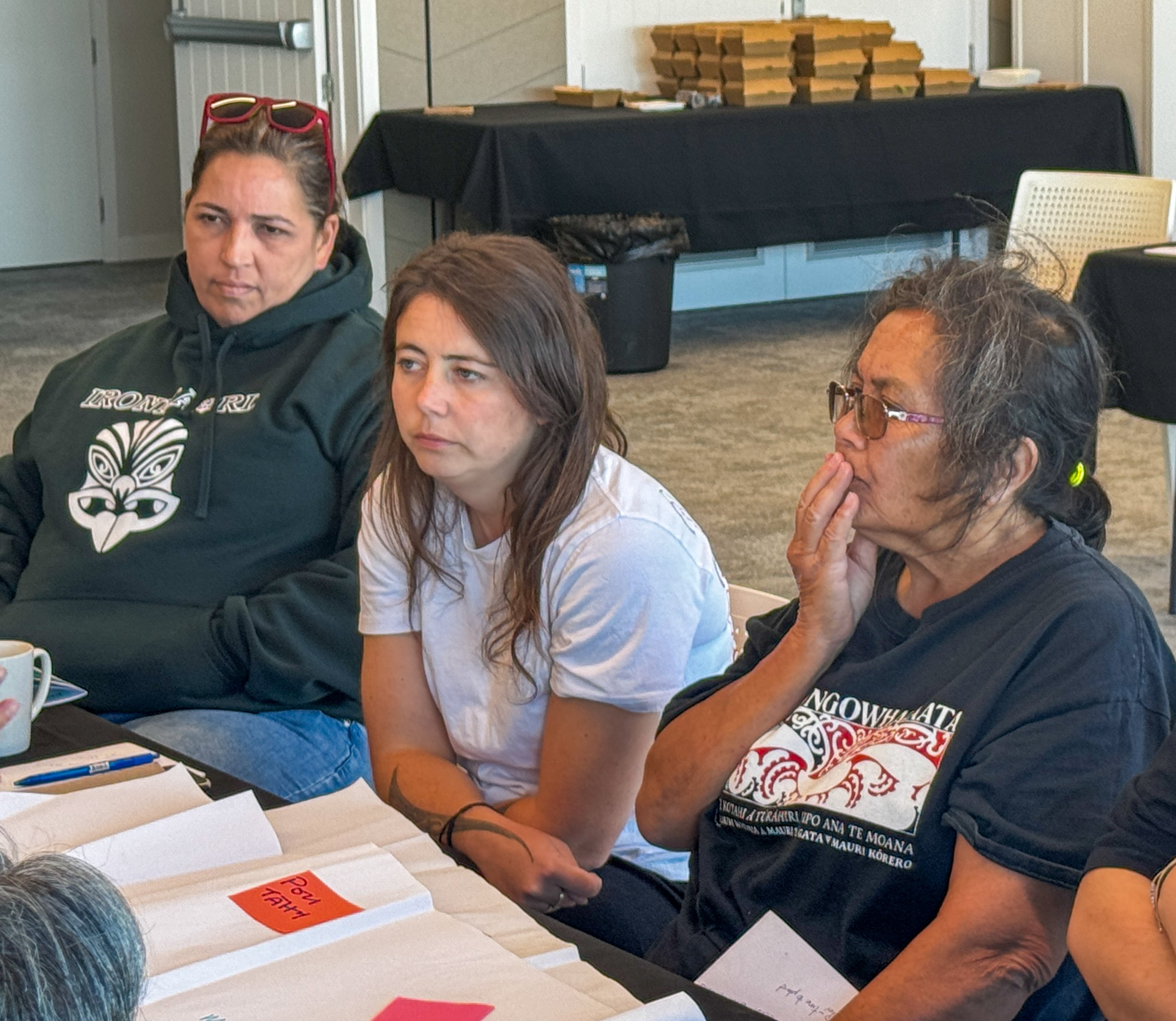Wānanga - ā - Iwi
The Wānanga-a-Iwi was held on 23rd March 2024, our haerenga led us through the heart of our rohe, from Taurangakoau to Pākirikiri, Ōtipi, and finally Rongokako-Pouawa.
A heartfelt thank you to Uncle Robin (Nuna) Wyllie, Uncle Stan Pardoe and Aunty Drin Hawea for graciously sharing your invaluable mātauranga about our connections.
Pawa, Kiwa and Hinehākirirangi are key founding tīpuna of Tūranganui-ā-Kiwa. Their whakapapa intertwines with descendants of Paikea, Maia, Paraki and Toi to converge upon our Ariki Ruapani. Ruapani’s legacy reaches across our tribal rohe and the fabric of Tūranga. Our mana moana extend from Te Kowhai-Kangaroa to Pouawa, out to Te Toka Āhuru.
This journey across our rohe invites uri to engage in your own identity as Rongowhakaata, to internalise, evoke and guide our Board’s collective leadership.
Download the wānanga booklet and listen to some of the kōrero below.
Listen to the kōrero
Taki Wānanga Reflections
The Wānanga-ā-Iwi conferred that the aspirations outlined in the Rongowhakaata Iwi Trust’s Tirohanga Whanui - 100-year Horizon, are appropriate.
Uri engaged in reflective discussions exploring vitality from their perspective, which highlighted that:
Uri want to connect with their Rongowhakaata identity. Thus, vitality is inherently Rongowhakaata-centric and guided by a sense of belonging.
There is a desire to grow Rongowhakaata reach, influence, and leadership, including by enabling whanau and hapu to lead with their own rangatiratanga. Rongowhakaata must work with others to avail collective efforts, but in Rongowhakaata ways and under Rongowhakaata terms.
Uri considered that the Trusts’s role was to be transparent, facilitatory and responsive to the needs of its people. They wanted the Trust to review what hapu devolution might mean. They also wanted to know more about where uri are and what skills they possess, to bring home to support.
It is imperative that Rongowhakaata spaces, narratives, practices, and connections are reclaimed, for future generations. Uri want to tap into the wisdom, lived experiences, and legacies of the past to create a future where their mokopuna are resilient and self-sufficient.
Wananga-ā-Iwi will replace Hui-ā- Iwi as uri reiterated their desire for more meaningful engagement and a deeper understanding of themselves. They also encouraged the Trust to adopt a more targeted, consistent, and specific approach to wānanga.

